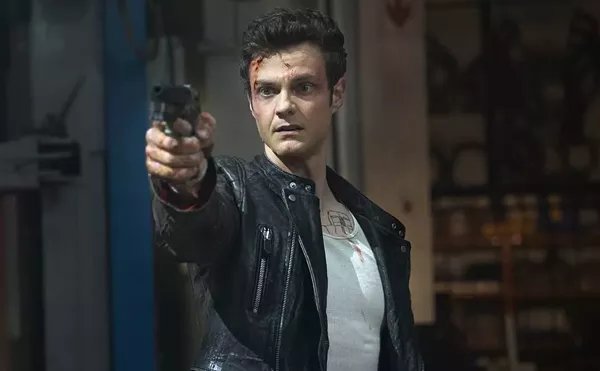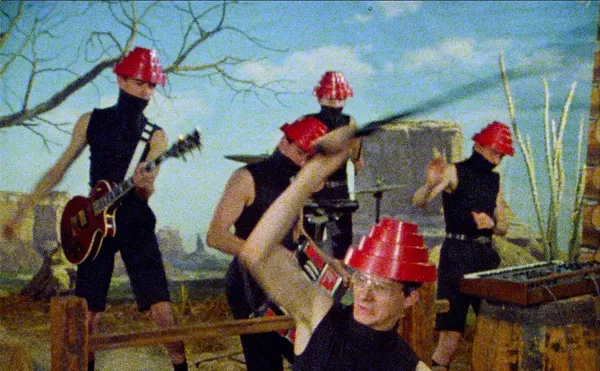Documentary? Zzzzzzzzzzzzzzzzzz … This is the knee-jerk reaction many people still have, no doubt induced by the painstakingly boring films suffered through during grade school.
But in recent years the documentary has been getting a makeover, evolving into provocative, funny, controversial mainstream fodder. The wildfire success of Super Size Me is one recent example; filmed for a mere $100,000, it has grossed nearly $11 million and stirred up a fair amount of controversy to boot. Not to mention Fahrenheit 9/11, which may well mark the first time a film has had a significant impact on a presidential race.
On a smaller scale, documentary film festivals — both modest and massive — are cropping up all over the country, drawing a distinctly non-geeky crowd.
Detroit Docs, now in its third year, has grown exponentially since its inception. Over four days, roughly 100 films will flicker across three screens on the Wayne State campus, and at the DIA, the Detroit Film Center and the Birmingham 8. Workshops and discussion panels will offer plenty of opportunities to get up close and personal with the filmmakers.
“I was just frustrated that we didn’t have a film festival in the city,” Detroit Docs founder Chris Walney says, “so I just decided to do it myself. And I like documentaries the best, so it was a documentary festival.
“At the time, I really felt like documentaries weren’t getting enough attention,” Walney says, “that people didn’t know how great they could be. I wanted to show people that documentaries weren’t just boring or stale, that they could be equally and more exciting than a Hollywood film.”
Apparently it’s working — just ask Morgan Spurlock, the Big Mac-chowing creator of Super Size Me.
“Studios have realized that people will pay money to go see a documentary if it’s a compelling story,” festival director Tod Hardin says. “These are real-life stories. These aren’t special effects or overpaid actors.”
Hardin says the festival aims to capture the gamut of documentaries out there, from the serious to the silly.
“One of our purposes is to show that these can be exciting, compelling, bizarre, interesting. These aren’t your father’s documentaries,” Hardin says.
At first, Walney expected the audience to be all students, but she’s found a wide variety of people in the theater seats “because documentaries have such a wide variety of subjects.”
In addition to a growing audience, there are simply more films being produced. The recent boom in digital video technology has led to readily available, inexpensive digital video cameras that are “prosumer” — professional quality, available to the consumer. Thus, it’s easier than ever to put out your own nonfiction film.
“It’s a fact that nowadays pretty much anybody can, for very minimal costs, produce a documentary,” Hardin says.
Hardin estimates about one-third of the documentaries are from Michigan filmmakers, but the festival showcases work from around the world.
Mosey on down to the festival and check them out for yourself. But if you’re still reluctant, test the waters on Thursday, Nov. 11, for the big kickoff party at the Wayne State University Welcome Center — it’s free, so you have nothing to lose.
Nov. 11-14. For information, visit detroitdocs.org. The WSU Welcome Center is at the corner of Woodward and Warren avenues. Sarah Klein is a Metro Times staff writer. Send comments to [email protected]






